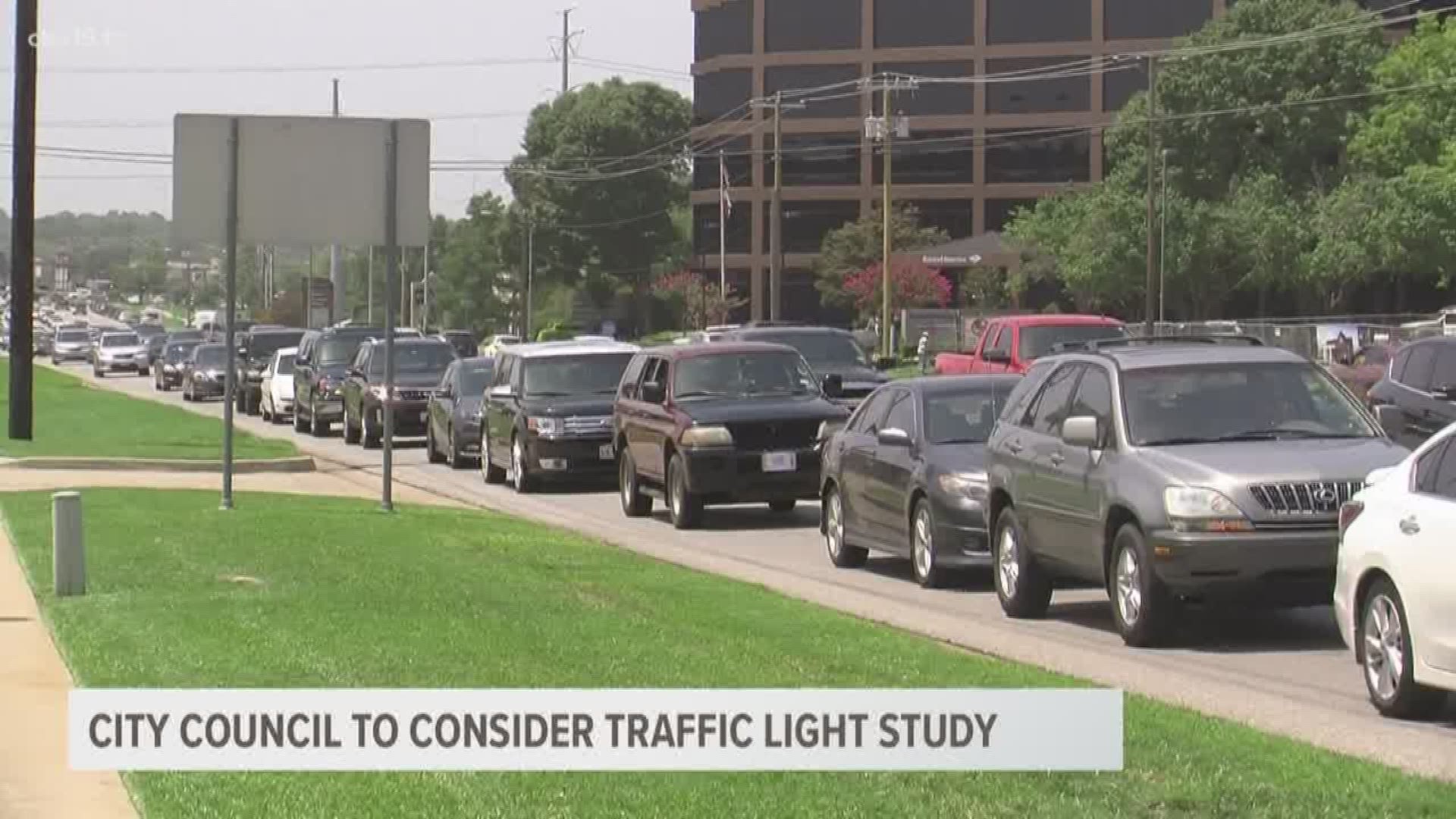TYLER, Texas — As Tyler’s population continues to grow, so does the congestion on the roads. The city has put forth several efforts to address the issue hoping to conduct upgrades.
“The city currently owns and operates about 160 traffic lights throughout the city,” Tyler City Engineer Lisa Crossman said.
On Wednesday the city council will vote on a proposal to execute a $621,740 amount engineering contract with Kimley-Horn and Associates Inc. which is a consulting firm Tyler’s worked with in the past on similar issues.
“They have a specific transportation group that does nothing but traffic signal studies," Crossman said. "They're currently doing probably about five-six studies throughout the metropolitan area.”
The firm would conduct a yearlong citywide intelligent traffic system study along with a pilot study in one of the city’s specific areas of concern.
"They'll be evaluating those signals and adjusting it, so then we'll be able to use that pilot study to make those same types of adjustments throughout the city," Crossman said. "So that we're getting better timing on all of the signals throughout the city."
Crossman says the city has issues with the traffic light system. Most of the equipment is outdated, with some installations dating back to the 1960s.
“Those lights have varying types of equipment, varying types of technology. None of them are automated," Crossman said.
With the signals being pre-programmed there is no way is senses change in traffic flow. Therefore, it cannot help alleviate growing traffic.
"There's no centralized system that allows staff to remotely control those signals," Crossman said. "So this study is really going to look at what our needs are, recommend different types of technology, recommend a centralized control system."
In order to change a signal pattern at a specific intersection, a worker must go to that light to reprogram it manually. Also each light works independently of one another. That means if there is a backup at one intersection the signal down the road cannot detect the issue.
“It’s been a long time coming. As I said, the city operates a lot of traffic signals and there’s a lot of different technology out there," Crossman said. "The system currently is more a patchwork type system with a lot of outdated technology, so this study is really going to go a long way upgrading our system.”
If the city council approves the study, Crossman says the consulting firm is prepared to start immediately. Starting with placing staff on the streets to do manual traffic counts before school is out for the summer.

